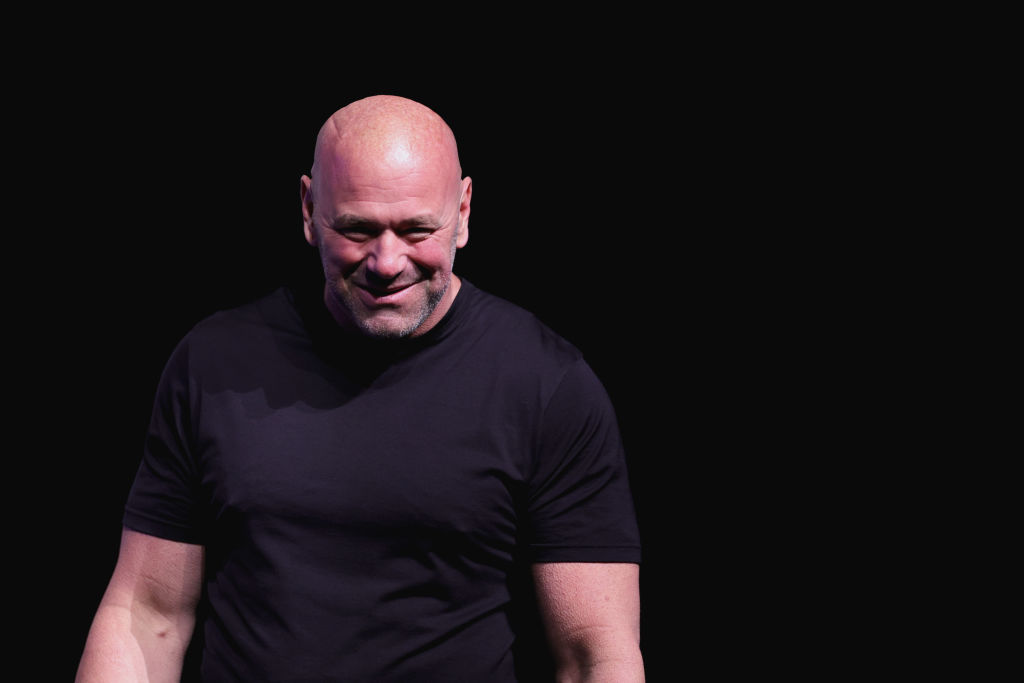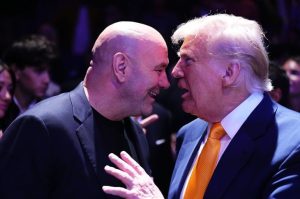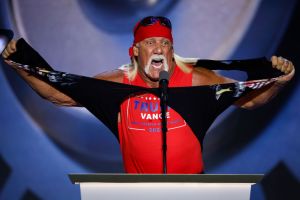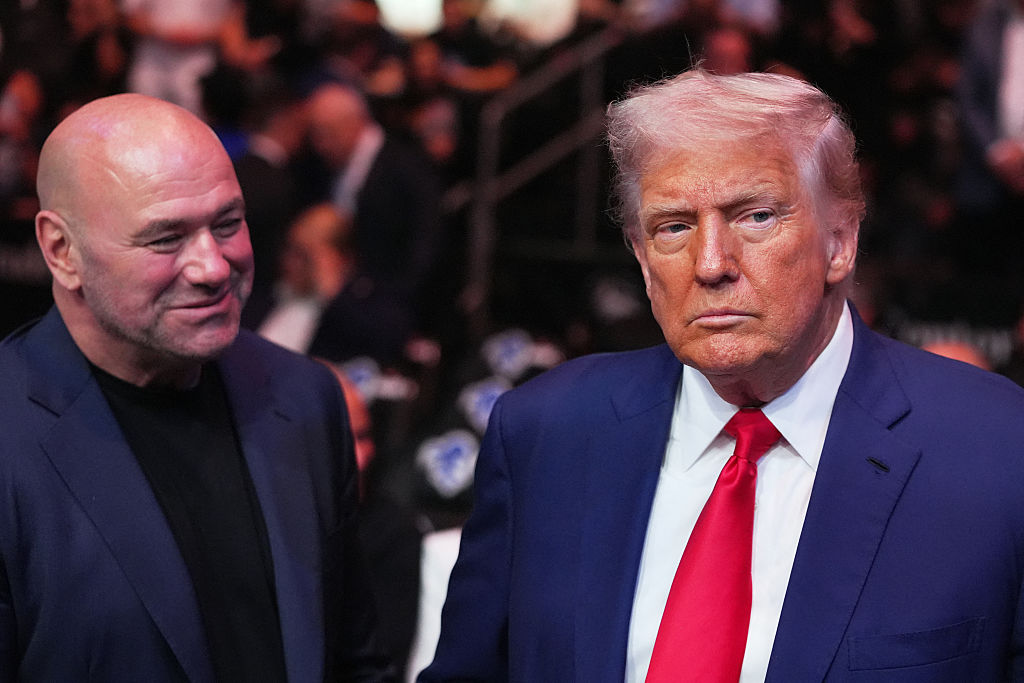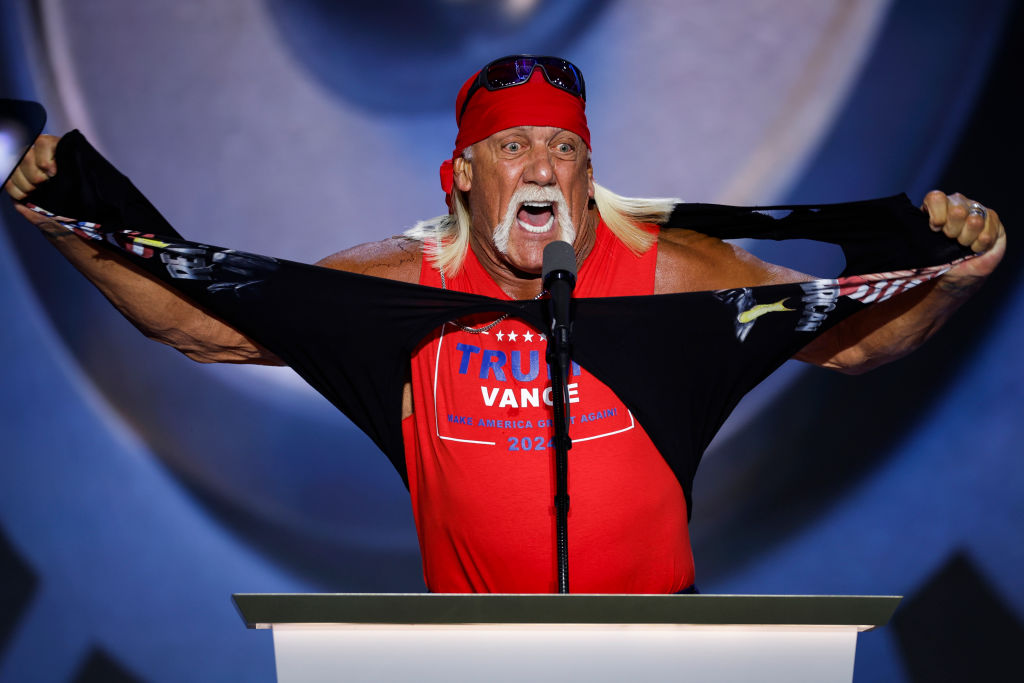UFC president Dana White’s new show Power Slap: Road to the Title debuted on January 18 to paltry ratings — a reported 295,000 viewers following a helpful lead-in from the pro wrestling show AEW Dynamite, which had nearly a million — and widespread critical outrage due to the seeming inhumanity of the sport.
Those who did tune in watched in mute horror as Chris Kennedy was brutally knocked out, his hands curling up in what Chris Nowinski, a former football player and wrestler turned brain trauma researcher, referred to as “fencing posture,” indicative of serious brain injury — then later proved unable to recollect what had happened to him. They gazed in astonishment as Alex Asbury endured two vicious slaps from opponent Michael Smith, the second resulting in a horrific lip laceration that will require surgery to repair. They stared helplessly as Kortney Olson, equally helpless during her turn to be slapped, absorbed a blow from opponent Sheena Bathory, her eyes rolling into the back of her head moments before she stumbled backwards into the podium containing the palm powder, then accidentally rolled forward. For suffering these injuries, competitors were allegedly paid $2,000 to show and $2,000 to win, according to former UFC fighter Eric Spicely, who declined to go on the show.
This was spectacle, not sport — a gruesome freak show going far beyond the indignities suffered by the cast of MTV’s Jackass and the contestants on the Joe Rogan-hosted Fear Factor game show. To be sure, combat sports from the boxing and pankration of the ancient Olympic Games to the mixed martial arts promoted by Dana White’s UFC have featured brutal injuries. At those ancient Olympic Games, “victorious boxers expected to be battered” and “the sight of one whose face did not display signs of damage was unusual,” wrote historian David Potter in his book The Victor’s Crown: A History of Ancient Sport from Homer to Byzantium.
To the Greeks, an Olympic event was an agon, a contest that enabled one to prove arete, or excellence. To the Romans, it was a ludus, a game in which competitors could demonstrate risk and dare against the uncertainty of face-to-face or side-by-side competition. For those who have spent any time whatsoever in the sporting arena, there are activities that provide these challenges more readily than others. What was essential to these mano-a-mano contests, whether occurring in 300 BCE or 2023 CE, was the fact that there was reciprocity, back-and-forth, the chance to exhibit grace and skill in defense. Even in something as simple as an arm wrestling match, the match is contested in real time by both competitors.
The rules of slap fighting, having evolved since the sport’s latter-day origins at Ink Masters, an American trade show for tattoo enthusiasts and subsequent modifications by powerlifting champion Kirill Sarychev and other Russian organizers of the Siberian Power Show who popularized it, are closely akin to Russian roulette (Русская рулетка, as introduced in Mikhail Lermontov’s short story “The Fatalist”), in which players take turns passing a revolver loaded with a single round back and forth until one or the other is killed (or a set number of turns is completed). In slap fighting, a coin toss determines who goes first — the most outcome-determinative event is left entirely to chance — and then the first slapper is given 30 seconds to deliver an open-handed slap to his opponent. Slaps must be kept below the eye but above the chin, without leading with the palm, thereby ensuring that all hand-to-face contact takes place at the same time. Those being slapped may not flinch, raise their shoulders, or tuck in their chins. After being slapped, the slapped competitor has thirty seconds to recover and get back into position before they take their turn to slap. Fights that don’t end in a stoppage after three rounds — meaning each competitor has withstood three hard slaps to the head — go to a judges’ decision, with decisions made using a ten-point scoring system.
Prior iterations of slap fighting, including the Siberian Power Show variant that made a social media star out of a stout, fat-fingered Russian farmer named Vasily “The Dumpling” Kamotsky, emphasized their status as one-off spectacles, not full-on competitive leagues. Speaking to the Guardian in 2019, Kamotsky, who earned a meager $400 for winning the event, remarked that “it feels like it’s taking away from everything else about [the Siberian Power Show]… There are plenty of events, but everyone has been asking about the slapping.”
This note of caution didn’t dissuade uber-athletic fitness influencer Logan Paul and bodybuilding great Arnold Schwarzenegger from partnering to introduce the “Slap Fighting Championship” to Schwarzenegger’s Arnold Classic fitness exhibition in Columbus, Ohio earlier this year. There, Paul whooped it up on social media as he watched Maksyilian Lesniak obliterate Nikolas Toth with the first slap of their fight — an all-too-common occurrence in a sport where victory depends so heavily on the flip of a coin. However, unlike Dana White’s Power Slap, this too was a one-off event that served as part of a larger athletic show, not something intended to become a permanent fixture in the professional sports landscape.
For Dana White, this debacle represents seemingly another disappointment in a career full of them, aside from the UFC for which he is a mere long-time employee, not the owner, as many casual observers seem to believe given his visibility on the company’s programming. White may have got some things right, like keeping the UFC open during the early days of the pandemic when fighters sorely needed money and fans sorely needed entertainment, but this is a new low for him.
I assumed that TMZ footage showing White and his long-time spouse Anne drunkenly brawling in a club would suffice to spare us Power Slap: Road to the Title (after all, mass media conglomerate and TNT parent company Warner Brothers Discovery allegedly wouldn’t even let the now-deceased wrestler Jay Briscoe on the air, on account of some homophobic tweets published in 2013). But White did something totally unexpected: instead of stepping away from his role and current projects, he simply said he was going to have to endure this shame forever yet needed to keep working, so he could ensure his various employees, along with the independent contractors who fight for the UFC and Power Slap, could get paid.
Thus Power Slap did indeed debut, albeit after a brief delay, and proved nothing short of a colossal embarrassment. I’ve covered wrestling and combat sports for more than a decade, reveling in some of the grisliest events of all time, and even this was too much for me. These were grown men and women who, for the measly sum of $2,000, had put themselves in the place of defenseless children, taking it on the cheek for… what, exactly? It certainly wasn’t arete, nor was it anything that the boxers and wrestlers of the past millennia would recognize as agon, a meaningful contest. It was, rather, a debased spectacle, given a phony veneer of athletic legitimacy by promoter White’s chrome-domed presence — Idiocracy-grade entertainment that’s inferior to watching emergency broadcasting system alerts and suitable, in the final analysis, only for flushing down the toilet.



